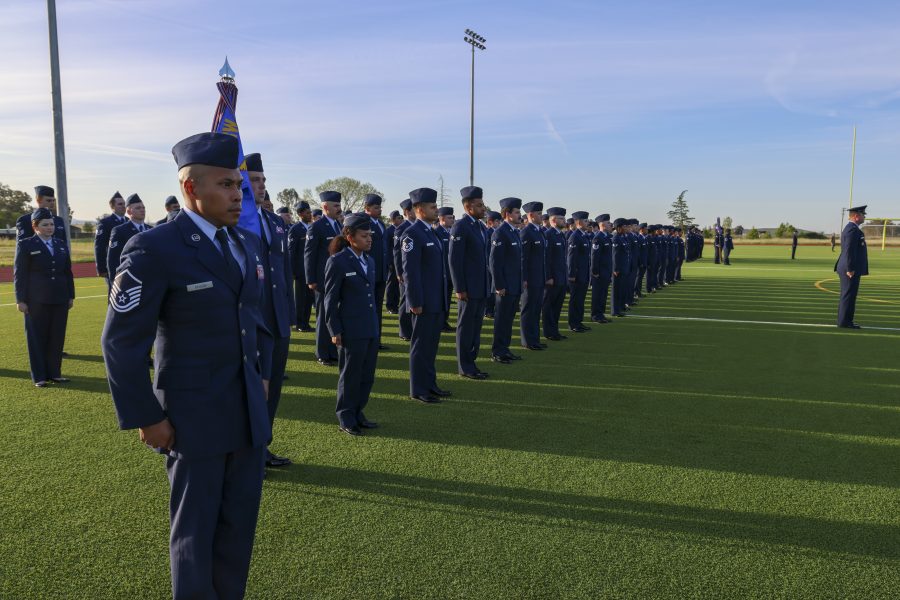Air Combat Command boss Gen. Kenneth S. Wilsbach has ordered tens of thousands of Airmen to face inspections in the next few weeks to make sure they’re meeting Air Force standards for dress and personal appearance.
Wilsbach’s directive, which will cover nearly 80,000 Airmen assigned to ACC, came in a June 10 memo that was circulated on social media. An ACC spokesperson confirmed its veracity to Air & Space Forces Magazine.
In the memo, Wilsbach noted that “while the majority of Airmen maintain professional standards, there is a discernable decline in the commitment to, and enforcement of, military standards in the Air Force.” As a result, he is giving commanders until July 17 to conduct unit-level “standards and compliance inspections.”
Those inspections will include open ranks inspections, in which flights of Airmen are formally inspected together, to review service members’ uniforms, customs, and courtesies. There will also be records inspections, in which commanders will review personnel files to determine if Airmen are up to date on their medical exemptions or religious accommodations, and if their religious accommodations need to be reevaluated due to new circumstances.
Finally, the ACC surgeon general will develop a shaving education course “to help Airmen understand the proper medical protocols to reduce irritation caused by shaving,” according to the memo. All Airmen will have to attend the shaving course before they are granted or can renew a medical exemption from the Air Force’s shaving standards.
The ACC spokesperson cited the Air Force’s February update to its dress and appearance standards document, DAFI 36-2903, as the impetus for the command’s inspections, calling them a “natural progression” to make sure all Airmen are in line with the update.
The spokesperson also noted ACC’s renewed focus on readiness as part of the Air Force’s “re-optimization for great power competition.” Chief of Staff Gen. David W. Allvin has said ACC is “transitioning into a different type of command” as part of the effort, focusing on readiness for the entire service and ceding control of Numbered Air Forces that present forces to combatant commands.
ACC’s memo noted that “readiness begins with the enforcement of high standards” and “enforcing standards goes beyond simply maintaining order and discipline; it is a foundational mission imperative.”
Former Chief Master Sergeant of the Air Force JoAnne S. Bass also highlighted the importance of standards to readiness and a perceived slip last June, writing at the time that “history shows that when standards erode, military capabilities and readiness decline.”
The reaction among Airmen on social media has been mixed—something ACC projected in its memo—with some arguing the inspections will take time away from mission and others arguing it is a necessary and needed part of being in the military.
“Most Air Force members want to do fulfilling work like deter conflict or crush our adversaries in aerial combat. Grooming standards are a pretty basic expectation in the U.S. military; it’s disappointing that we have to waste time on enforcing them,” an Air Force officer with experience in ACC told Air & Space Forces Magazine.
The focus on shaving waivers, in particular, has sparked debate—many Airmen have advocated for years for the service to allow beards without a waiver. Currently, Airmen are allowed to grow beards if they receive a religious exemption or a medical waiver for conditions such as pseudofolliculitis barbae (PFB), also known as razor bumps, a skin condition caused by ingrown hairs that makes shaving painful and can lead to scarring if skin is not given a chance to heal.
Waivers have become easier to obtain in recent years, but advocates say there is still a cultural stigma around facial hair that can hold back Airmen’s careers. Lawmakers on the House Armed Services Committee voted last month to create a three-year Air Force test program studying the effects of beards on safety, discipline, morale, and inclusivity, but that legislation is still pending.


